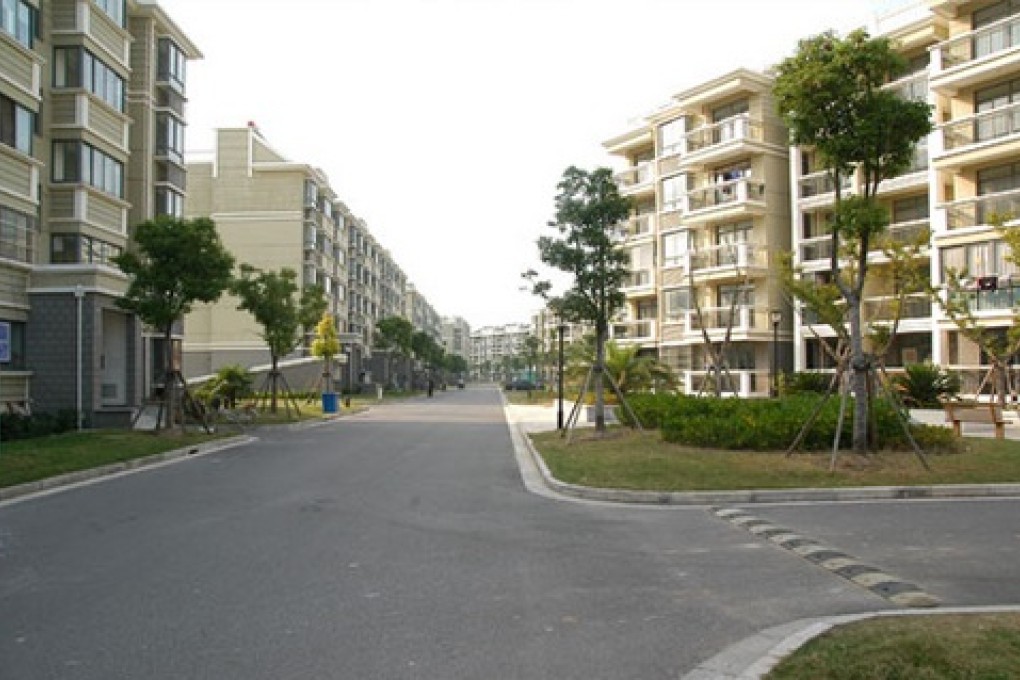Town's property booms while China slumps
Rising debt fuels real estate in a mainland town, highlighting local government's fiscal dangers

Property prices are booming in an island town of 60,000 people near Shanghai while the market slumps elsewhere. It comes at a cost: swelling borrowing that is threatening local-government finances.

Chenjia's expansion was partly paid for with a 800 million yuan (HK$1 billion) bond sold through a financing unit last year, exceeding the town's 120 million yuan of fiscal revenue, to build cheap homes for farmers as rice fields become tourist attractions.
"We've been so busy we can't even take days off on holidays," said Tang, who now lives and works in a neighbourhood whose name means wealthy and grand, after relocating from a rural house nearby two years ago. "I don't know if I'm concerned about the local-government debt. Life is better than before."
Premier Li Keqiang must balance plans to build 36 million new homes for families like Tang's, as he champions urbanisation to spur economic growth, with steps to rein in local liabilities that have swelled to 17.9 trillion yuan. Debt in counties such as Chongming, which includes the island where Chenjia is located at the mouth of the Yangtze River, soared 77 per cent to the end of June last year from December 2010, outpacing the 62 per cent increase for provinces, according to audit bureau data.
An official at Chenjia's local government financing vehicle, or LGFV, declined to comment on the source of funds for debt repayment. A press official at Chongming County also declined to comment.
"There's a mismatch between local government revenue and resources, which is particularly conspicuous on the county level," said David Cui, China strategist at Bank of America. "There will be problems in the future for many local governments that borrowed heavily without adequate fiscal revenue."